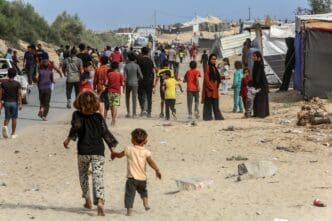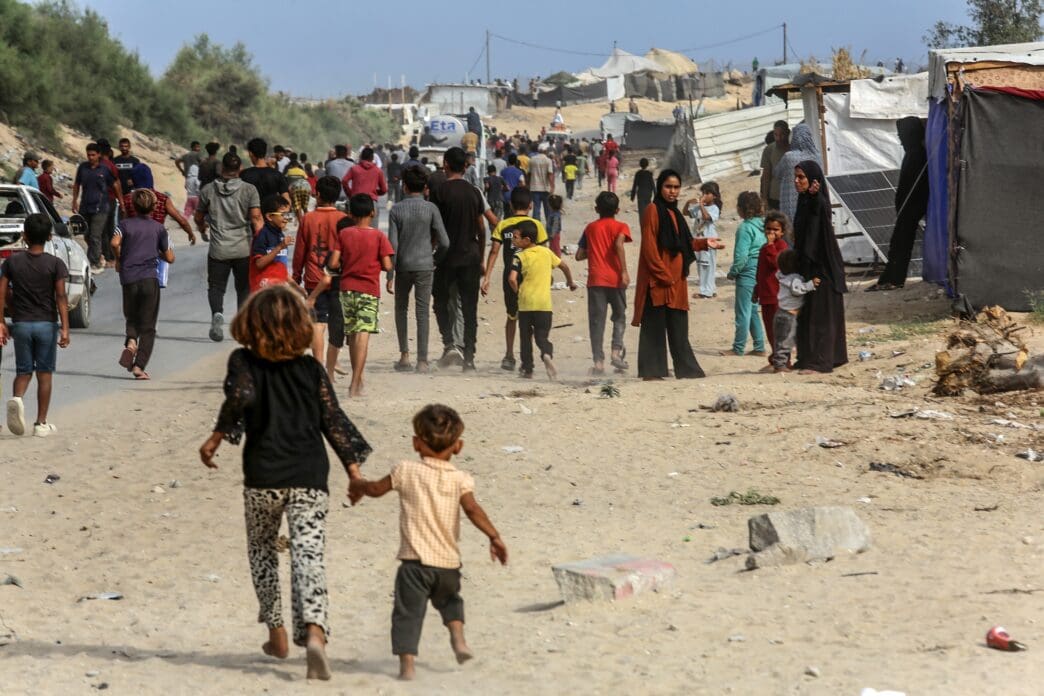Executive Summary
The Story So Far
Why This Matters
Who Thinks What?
The Israeli navy intercepted and boarded 40 of 44 humanitarian ships comprising the Global Sumud Flotilla bound for Gaza during the night of October 1-2, 2025, sparking widespread protests across major European cities. This action has been met with notable silence from key European Union leaders, including Commission President Ursula von der Leyen and Council President Antonio Costa, despite calls for a robust response from activists and some Members of the European Parliament (MEPs). The incident has intensified calls for a permanent humanitarian corridor to Gaza and an end to the Israeli maritime blockade.
Flotilla Interception and Activist Detention
The interception saw approximately 400 activists from over 40 countries detained by Israeli authorities. These individuals are expected to be transferred to the port of Ashdod before likely expulsion from Israel early next week. Italian Foreign Minister Antonio Tajani indicated that activists would be returned to airports in London and Madrid.
Despite the widespread interception, three vessels—the Fair Lady, the Marinette, and the Mikeno—reportedly continued their journey. These ships have crossed into the 12 nautical mile zone marking Palestinian territorial waters, continuing their mission towards Gaza.
EU Leaders’ Initial Silence and Official Statement
The boarding operation occurred as President von der Leyen and Council President Costa were holding a press conference in Copenhagen. Both leaders stated they lacked sufficient information to comment on the incident. Kaja Kallas, the head of EU diplomacy, also maintained silence on the matter.
In a daily press briefing on Thursday, a spokeswoman for the EU executive emphasized that “international humanitarian law must be upheld as well as the international law of the sea.” She added that Brussels had previously condemned “any attack against the Flotilla, with drones or any seizure,” and that the crew had the right to fulfill its mission of providing aid to Gaza.
However, the spokeswoman noted that while the EU aims to provide aid, the Flotilla’s declared objectives extend beyond immediate relief. Activists explicitly seek an end to the maritime blockade imposed by Israel on the Gaza Strip and the establishment of a permanent humanitarian corridor, demands not previously made by Brussels.
Widespread Protests Across Europe
The Israeli action immediately triggered demonstrations across Europe, beginning Wednesday night. Protests took place in major Italian cities, including Rome, Milan, Turin, Naples, Bologna, and Florence, with trade unions subsequently calling for a general strike for Friday, October 3.
Similar demonstrations erupted in Berlin, Paris, and other French cities. In Brussels, hundreds gathered in front of the Belgian Foreign Ministry, with a larger march planned for Thursday afternoon to approach the headquarters of the European Commission and European Council on Rue de la Loi.
Divergent Political Reactions
Italian Prime Minister Giorgia Meloni criticized the protests, stating that such actions “do not bring any benefit to the people of Palestine” and, conversely, “will bring many inconveniences to the Italian people.” Meanwhile, Italian Foreign Minister Antonio Tajani, during a live broadcast, stated that “what international law says is important, but only up to a certain point,” a remark that drew attention.
On Thursday morning, approximately thirty MEPs gathered in front of the European Parliament in Brussels to express their outrage. Four MEPs were reportedly aboard the intercepted Flotilla: Italians Benedetta Scuderi (AVS, Green group) and Annalisa Corrado (PD, Socialist group), along with French MEPs Rima Hassan and Emma Fourreau (European Left group).
The Left Group condemned the incident, stating it is “unacceptable that the European Union and its member states continue to allow Israel to act with impunity.” The 5 Star Movement (M5S) called on European institutions to condemn the assault, approve sanctions, and demand the immediate release of all activists. Nicola Zingaretti, leader of the PD delegation, highlighted the Flotilla’s “humanitarian and peaceful” intentions and called for respectful treatment of activists. M5S MEP Gaetano Pedullà announced that his delegation would submit an urgent question to the European Commission during the upcoming plenary session in Strasbourg.
Ongoing Tensions
The interception of the Global Sumud Flotilla underscores the persistent tensions surrounding the Gaza blockade and humanitarian access. With EU leaders maintaining a cautious stance, the incident has amplified calls from various political groups and the public for a more decisive European response to the situation in the Palestinian territories.








